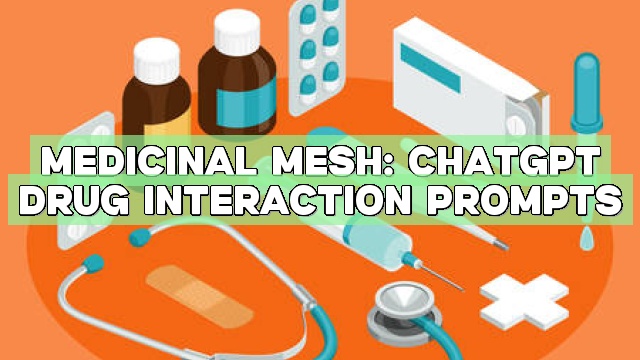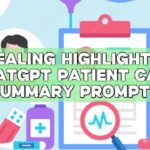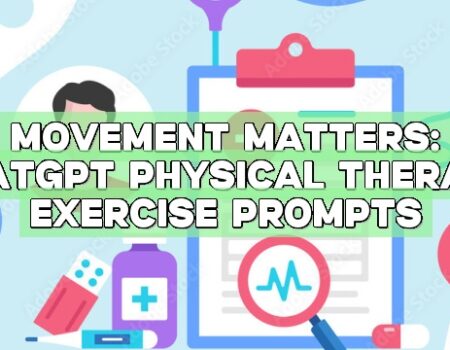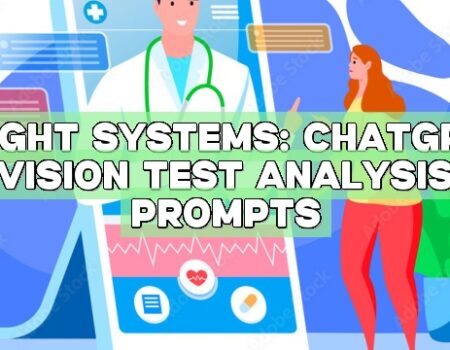Drug-drug interactions (DDIs) can have serious consequences for patient health and well-being. Patients who are taking multiple medications may be at an increased risk of experiencing adverse events or drug toxicity if they are not aware of potential interactions between their medications [1]. Therefore, patient education on the risks and consequences of DDIs is essential for promoting safe and effective medication use [1]. In many developing countries, the availability of drugs without a prescription encourages self-medication or taking suggestions from non-physician healthcare providers. This practice increases the risk of DDIs because individuals may not have the necessary knowledge and expertise to understand the potential risks and side effects of taking multiple medications [4,5].
To address these concerns, researchers have been exploring the use of artificial intelligence (AI) technologies to predict and explain DDIs. One such technology is ChatGPT, an AI platform that has shown promise in predicting pharmaceutical drug interactions and prompting healthcare professionals with information about the same [9]. A recent study aimed to investigate the effectiveness of ChatGPT in predicting and explaining common DDIs [1].
Key Takeaways:
- DDIs pose a significant risk to patient health and well-being, and patient education is critical in promoting safe and effective medication use.
- ChatGPT is an AI platform that shows promise in predicting and explaining DDIs to healthcare professionals.
- Further improvements are required to ensure responsible utilization and avoid incomplete guidance.
- ChatGPT has potential benefits in healthcare education, research, and practice, but concerns regarding its use must be addressed to guide responsible application.
- Paradigm shifts and limitations must be considered in the use of ChatGPT and other AI technologies in healthcare.
The Role of AI in Predicting and Explaining DDIs
To address these concerns, researchers have been exploring the use of artificial intelligence (AI) technologies to predict and explain drug-drug interactions (DDIs). One such technology is ChatGPT, a large language model that has shown promise in various natural language processing tasks, including conversational text generation [9].
A recent study aimed to investigate the effectiveness of ChatGPT in predicting and explaining common DDIs [1]. The study involved preparing a list of 40 previously published DDIs from the literature. Researchers interacted with ChatGPT by asking two-stage questions: “Can I take X and Y together?” and “Why should I not take X and Y together?” The responses were then categorized as correct or incorrect, conclusive or inconclusive. The study found that ChatGPT provided partially effective guidance, with some answers being incorrect or inconclusive [1].
While ChatGPT may be a helpful tool for patients who do not have immediate access to healthcare facilities, it is important to note that it may provide incomplete guidance. Further improvements are required for potential usage by patients to obtain ideas about DDIs [1].
In another systematic review examining the utility of ChatGPT in healthcare education, research, and practice, researchers found that ChatGPT has potential benefits in various areas [2]. These benefits include improved scientific writing, enhancing research equity and versatility, efficient analysis of datasets, code generation, literature reviews, streamlining workflow, cost saving, documentation, personalized medicine, and improved health literacy [2].
However, concerns regarding the use of ChatGPT in healthcare were also identified. These concerns include ethical, copyright, transparency, and legal issues, the risk of bias, plagiarism, lack of originality, inaccurate content with the risk of hallucination, limited knowledge, incorrect citations, cybersecurity issues, and the risk of infodemics [2]. It is crucial to address these concerns and set a code of ethics to guide the responsible use of ChatGPT and other AI technologies in healthcare and academia [2].
The promising applications of ChatGPT and other AI technologies in healthcare have the potential to induce paradigm shifts in education, research, and practice. However, caution must be exercised, and limitations must be considered. ChatGPT currently does not qualify to be listed as an author in scientific articles unless the ICMJE/COPE guidelines are revised or amended [2].
Study on ChatGPT’s Effectiveness in Predicting and Explaining DDIs
The study involved preparing a list of 40 previously published DDIs from the literature. Researchers interacted with ChatGPT by asking two-stage questions: “Can I take X and Y together?” and “Why should I not take X and Y together?” The responses were then categorized as correct or incorrect, conclusive or inconclusive. The study found that ChatGPT provided partially effective guidance, with some answers being incorrect or inconclusive [1].
While ChatGPT may be a helpful tool for patients who do not have immediate access to healthcare facilities, it is important to note that it may provide incomplete guidance. Further improvements are required for potential usage by patients to obtain ideas about DDIs.
In another systematic review examining the utility of ChatGPT in health care education, research, and practice, researchers found that ChatGPT has potential benefits in various areas. These benefits include improved scientific writing, enhancing research equity and versatility, efficient analysis of datasets, code generation, literature reviews, streamlining workflow, cost saving, documentation, personalized medicine, and improved health literacy [2].
However, concerns regarding the use of ChatGPT in healthcare were also identified. These concerns include ethical, copyright, transparency, and legal issues, the risk of bias, plagiarism, lack of originality, inaccurate content with the risk of hallucination, limited knowledge, incorrect citations, cybersecurity issues, and the risk of infodemics. It is crucial to address these concerns and set a code of ethics to guide the responsible use of ChatGPT and other AI technologies in healthcare and academia [2].
The promising applications of ChatGPT and other AI technologies in healthcare have the potential to induce paradigm shifts in education, research, and practice. However, caution must be exercised, and limitations must be considered. ChatGPT currently does not qualify to be listed as an author in scientific articles unless the ICMJE/COPE guidelines are revised or amended [2].
In conclusion, ChatGPT shows promise in predicting and explaining DDIs and has potential benefits in healthcare education, research, and practice. However, it is important to address concerns related to its use and ensure responsible application. Further improvements and ethical considerations are necessary for its effective utilization in patient education and decision-making regarding DDIs.
Limitations of ChatGPT in Providing Complete Guidance
While ChatGPT may be a helpful tool for patients who do not have immediate access to healthcare facilities, it is important to note that it may provide incomplete guidance. In a recent study investigating the effectiveness of ChatGPT in predicting and explaining common DDIs, researchers found that ChatGPT provided partially effective guidance, with some answers being incorrect or inconclusive. Therefore, caution is warranted when relying solely on ChatGPT for making decisions regarding the use of medications.
Further improvements are required to increase the accuracy and completeness of ChatGPT’s guidance on DDIs. This may involve incorporating additional data sources and refining the algorithms used to generate responses. The development of ChatGPT’s accuracy on incomplete datasets are the prime target for future research.
It is also important to recognize that ChatGPT is not a substitute for expert medical advice. Patients should always consult with healthcare professionals if they have concerns about potential DDIs. Patients should not make any changes to their medication regimen without first consulting their physicians or pharmacists.
Therefore, while ChatGPT provides a potential avenue for improving patient education and decision-making regarding DDIs, it is not a definitive solution. Further research is necessary to develop and refine the technology’s capabilities, and to address the ethical and legal concerns associated with its use in healthcare.
Potential Benefits of ChatGPT in Healthcare Education and Practice
Drug-drug interactions (DDIs) can have serious consequences for patient health and well-being. Patients who are taking multiple medications may be at an increased risk of experiencing adverse events or drug toxicity if they are not aware of potential interactions between their medications [1]. Therefore, patient education on the risks and consequences of DDIs is essential for promoting safe and effective medication use [1]. In many developing countries, the availability of drugs without a prescription encourages self-medication or taking suggestions from non-physician healthcare providers. This practice increases the risk of DDIs because individuals may not have the necessary knowledge and expertise to understand the potential risks and side effects of taking multiple medications [4,5].
In another systematic review examining the utility of ChatGPT in healthcare education, research, and practice, researchers found that ChatGPT has potential benefits in various areas [2]. These benefits include improved scientific writing, enhancing research equity and versatility, efficient analysis of datasets, code generation, literature reviews, streamlining workflow, cost saving, documentation, personalized medicine, and improved health literacy [2].
ChatGPT can assist healthcare professionals, researchers, and students in complex problem-solving, data analysis, and interpretation of information. With the ability to generate personalized treatment plans based on individual patient characteristics, ChatGPT can potentially improve patient outcomes and adherence to medication regimens [3]. Additionally, ChatGPT can help streamline workflow by providing quick and accurate answers to common clinical questions, freeing up time for healthcare professionals to focus on more complex cases.
Other potential benefits of ChatGPT include its ability to enhance research equity and versatility, allowing researchers from different disciplines and backgrounds to collaborate and share knowledge more efficiently. ChatGPT can also assist in the creation of literature reviews, saving time and resources, and increasing research efficiency [2].
Cost savings can also be achieved through the use of ChatGPT in healthcare practice. With the ability to generate accurate and personalized treatment plans, ChatGPT can potentially reduce the number of unnecessary tests and procedures, saving both time and money for patients and healthcare providers [3].
Furthermore, ChatGPT can improve health literacy by providing patients with clear and concise information about their medication regimens and potential DDIs. By improving health literacy, ChatGPT can empower patients to take an active role in their healthcare and make informed decisions about their treatment plans [2].
Although ChatGPT has potential benefits in various areas of healthcare, further research and improvement are necessary to fully realize its potential. Ethical concerns and limitations must also be addressed to ensure responsible utilization of this technology in healthcare and academia [2].
Concerns Regarding the Use of ChatGPT in Healthcare
However, concerns regarding the use of ChatGPT in healthcare were also identified. These concerns include ethical, copyright, transparency, and legal issues, the risk of bias, plagiarism, lack of originality, inaccurate content with the risk of hallucination, limited knowledge, incorrect citations, cybersecurity issues, and the risk of infodemics [2]. It is crucial to address these concerns and set a code of ethics to guide the responsible use of ChatGPT and other AI technologies in healthcare and academia [2].
ChatGPT is a powerful tool, but it is not immune to limitations. The technology currently does not qualify to be listed as an author in scientific articles unless the ICMJE/COPE guidelines are revised or amended. This highlights the need to consider the limitations of ChatGPT and other AI technologies before incorporating them into healthcare education, research, and practice [2].
Concerns Regarding the Use of ChatGPT in Healthcare
Drug-drug interactions (DDIs) can have serious consequences for patient health and well-being. Patients who are taking multiple medications may be at an increased risk of experiencing adverse events or drug toxicity if they are not aware of potential interactions between their medications [1]. Therefore, patient education on the risks and consequences of DDIs is essential for promoting safe and effective medication use [1]. In many developing countries, the availability of drugs without a prescription encourages self-medication or taking suggestions from non-physician healthcare providers. This practice increases the risk of DDIs because individuals may not have the necessary knowledge and expertise to understand the potential risks and side effects of taking multiple medications [4,5].
To address these concerns, researchers have been exploring the use of artificial intelligence (AI) technologies to predict and explain DDIs. One such technology is ChatGPT, a large language model that has shown promise in various natural language processing tasks, including conversational text generation [9]. A recent study aimed to investigate the effectiveness of ChatGPT in predicting and explaining common DDIs [1].
The study involved preparing a list of 40 previously published DDIs from the literature. Researchers interacted with ChatGPT by asking two-stage questions: “Can I take X and Y together?” and “Why should I not take X and Y together?” The responses were then categorized as correct or incorrect, conclusive or inconclusive. The study found that ChatGPT provided partially effective guidance, with some answers being incorrect or inconclusive [1].
While ChatGPT may be a helpful tool for patients who do not have immediate access to healthcare facilities, it is important to note that it may provide incomplete guidance. Further improvements are required for potential usage by patients to obtain ideas about DDIs [1].
In another systematic review examining the utility of ChatGPT in health care education, research, and practice, researchers found that ChatGPT has potential benefits in various areas [2]. These benefits include improved scientific writing, enhancing research equity and versatility, efficient analysis of datasets, code generation, literature reviews, streamlining workflow, cost saving, documentation, personalized medicine, and improved health literacy [2].
However, concerns regarding the use of ChatGPT in healthcare were also identified. These concerns include ethical, copyright, transparency, and legal issues, the risk of bias, plagiarism, lack of originality, inaccurate content with the risk of hallucination, limited knowledge, incorrect citations, cybersecurity issues, and the risk of infodemics [2]. It is crucial to address these concerns and set a code of ethics to guide the responsible use of ChatGPT and other AI technologies in healthcare and academia.
Ethical Considerations and Code of Ethics for ChatGPT Usage
The promising applications of ChatGPT and other AI technologies in healthcare have the potential to induce paradigm shifts in education, research, and practice. However, caution must be exercised, and limitations must be considered. ChatGPT currently does not qualify to be listed as an author in scientific articles unless the ICMJE/COPE guidelines are revised or amended [2].
In conclusion, ChatGPT shows promise in predicting and explaining DDIs and has potential benefits in healthcare education, research, and practice. However, it is important to address concerns related to its use and ensure responsible application. Further improvements and ethical considerations are necessary for its effective utilization in patient education and decision-making regarding DDIs.
Paradigm Shifts and Limitations of ChatGPT in Healthcare
The promising applications of ChatGPT and other AI technologies in healthcare have the potential to induce paradigm shifts in education, research, and practice. ChatGPT has the potential to improve healthcare literacy, streamline workflows, and reduce costs in research. However, it is important to consider its limitations and potential risks associated with its use in healthcare.
ChatGPT provides partially effective guidance in predicting and explaining DDIs. Therefore, it should not be considered a substitute for expert healthcare advice. Patients should always consult with healthcare professionals for personalized treatment advice.
Furthermore, concerns regarding ethical, legal, and content-related issues must be addressed for the responsible use of ChatGPT in healthcare. There is a risk of bias, plagiarism, inaccurate content, and the possibility of infodemics. Proper guidelines and a code of ethics are necessary to ensure the responsible application of ChatGPT and other AI technologies in healthcare and academia.
While ChatGPT has potential benefits in various areas of healthcare education, research, and practice, it is important to consider its limitations and the need for further improvements. ChatGPT currently does not qualify to be listed as an author in scientific articles unless guidelines are revised or amended. Therefore, healthcare professionals should exercise caution when using ChatGPT for healthcare education and decision-making regarding DDIs.
Conclusion – ChatGPT for DDIs and Responsible Utilization
In conclusion, ChatGPT shows promise in predicting and explaining DDIs and has potential benefits in healthcare education, research, and practice. However, it is important to address concerns related to its use and ensure responsible application. Further improvements and ethical considerations are necessary for its effective utilization in patient education and decision-making regarding DDIs.
While ChatGPT may be a helpful tool for patients who do not have immediate access to healthcare facilities, limitations in its effectiveness must be considered. It is important to note that ChatGPT may provide incomplete guidance and further improvements are required for potential usage by patients as a source of information about DDIs. Therefore, healthcare professionals play an essential role in assisting patients with medication management and guiding them about potential DDIs.
Although ChatGPT has potential benefits in various areas of healthcare education, research, and practice, concerns regarding its use demand attention. The need for establishing a code of ethics to guide the responsible use of ChatGPT and other AI technologies in healthcare and academia has become increasingly critical. Ethical considerations should be given priority to ensure the safe and responsible use of ChatGPT in the healthcare industry.
The promising applications of ChatGPT and other AI technologies in healthcare have the potential to induce paradigm shifts in education, research, and practice. However, it is crucial to consider limitations and challenges that may arise as AI technologies continue to be introduced into the healthcare industry. ChatGPT currently does not qualify to be listed as an author in scientific articles unless the ICMJE/COPE guidelines are revised or amended.
FAQ
Q: How can ChatGPT help in predicting and explaining drug-drug interactions?
A: ChatGPT is an artificial intelligence technology that has shown promise in predicting and explaining common drug-drug interactions. It can provide guidance on whether certain medications can be taken together and why they should not be taken together.
Q: Does ChatGPT provide complete guidance for drug-drug interactions?
A: No, ChatGPT may provide incomplete guidance for drug-drug interactions. Further improvements are required to ensure more accurate and conclusive information.
Q: What are the potential benefits of using ChatGPT in healthcare education and practice?
A: ChatGPT has the potential to improve scientific writing, enhance research equity and versatility, streamline workflows, save costs, facilitate personalized medicine, and improve health literacy.
Q: What are the concerns associated with using ChatGPT in healthcare?
A: Some concerns include ethical, copyright, transparency, and legal issues, the risk of bias and plagiarism, inaccurate content, limited knowledge, cybersecurity issues, and the risk of infodemics.
Q: Are there ethical considerations and a code of ethics for ChatGPT usage in healthcare?
A: It is crucial to address ethical considerations and establish a code of ethics to guide the responsible use of ChatGPT and other AI technologies in healthcare and academia.
Q: Can ChatGPT induce paradigm shifts in healthcare?
A: ChatGPT and other AI technologies have the potential to induce paradigm shifts in healthcare education, research, and practice. However, limitations must also be considered.
Q: What is the conclusion regarding the use of ChatGPT for drug-drug interactions?
A: ChatGPT shows promise in predicting and explaining drug-drug interactions, but responsible utilization and further improvements are necessary to ensure its safe and effective utilization.









